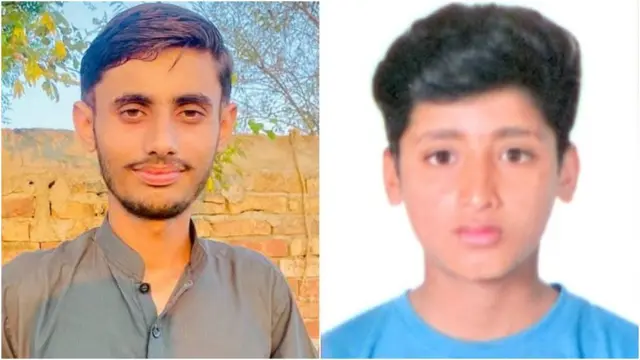Tracking a smuggler behind deadly Atlantic migrant crossing
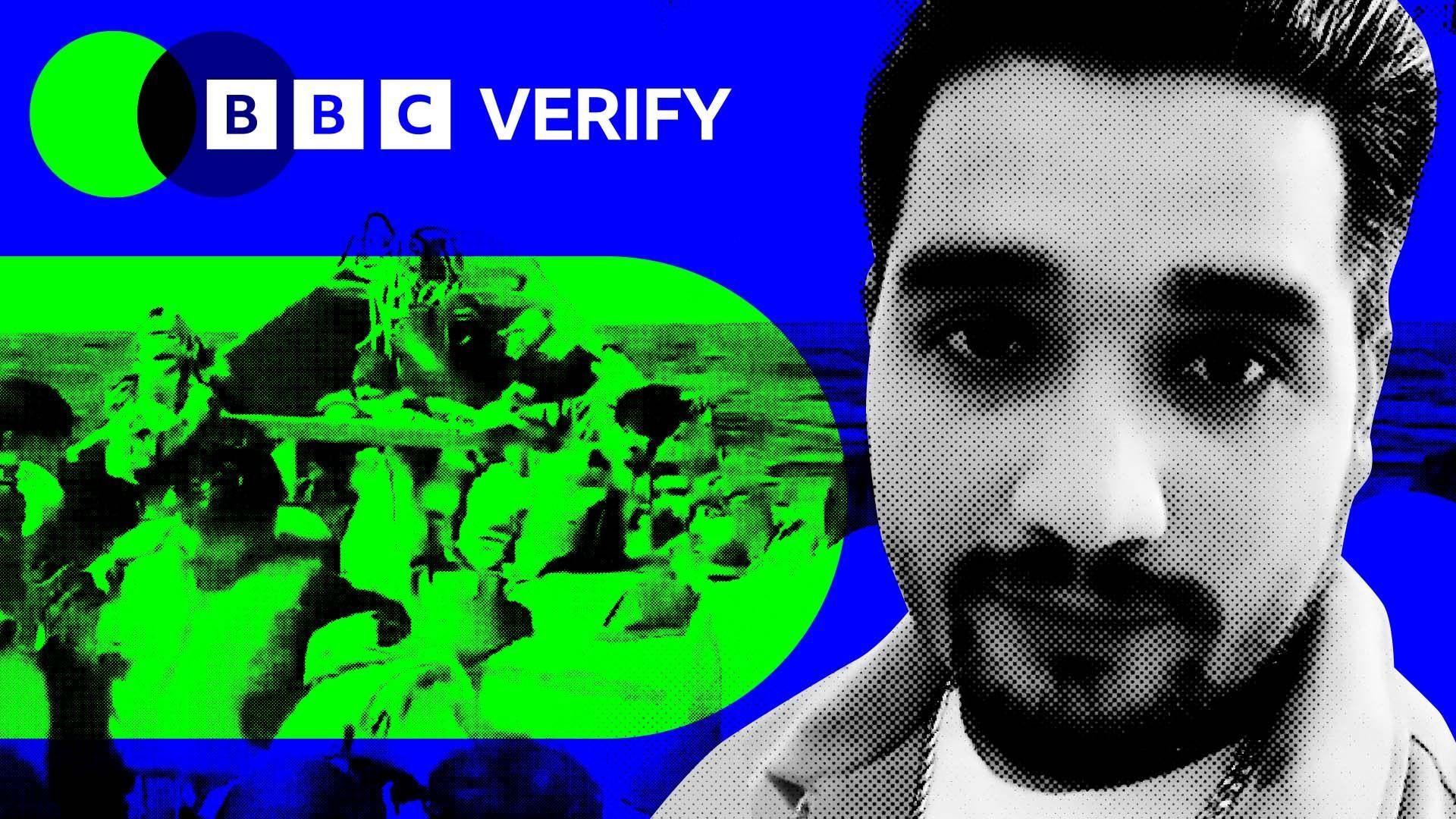
- Published
In January a migrant boat was rescued off the north African coast after 14 harrowing days lost at sea. Some 50 people died on the voyage, many of whom were lied to by people smugglers promising safe and legal routes to Europe. BBC Verify has tracked one of the traffickers responsible - documenting his activities across three continents.

Punjabi rap music plays over a video showing three men at a beachside restaurant in Mauritania's capital Nouakchott. One after the other, they smile at the camera before casually turning to talk and laugh together.
The three are clearly friends. Two of them, Sufian Ali and Atif Shahzad, are cousins from rural Pakistan.
But it's the third man in particular who dominates the conversation. He's Fadi Gujjar, a people smuggler.
The video - posted to Gujjar's TikTok account - is one of more than 450 clips analysed by BBC Verify that reveal clues about his activities and his close relationship to the other men.
Within a month of this video being posted online, Ali and Shahzad were dead - beaten to death on the boat journey sold to them by Gujjar, who promised a safe route into Europe.
Meanwhile, Gujjar found himself on the run, wanted by Pakistan's Federal Investigation Agency (FIA), external for his role in the tragedy.
When BBC Verify contacted him on a phone number obtained from survivors, Gujjar said repeatedly in a series of voice notes his name had been "misused" by survivors in connection with the disaster and that he was leaving it all in the hands of Allah.
BBC Verify contacts the people smuggler, Fadi Gujjar
Fadi, the nomad smuggler
Fadi Gujjar is from Jaurah in Pakistan's Punjab region. In his 30s, his real name is Khawar Hassan - though he also goes by Bishi Gujjar.
Pakistani smugglers the BBC has previously reported on have tended to boastfully advertise illegal routes to Europe online.
But Gujjar is careful. His online presence is limited to highly edited videos of his travels and almost all clients BBC Verify identified are local to Jaurah. Advertisements for his services seem to spread by word of mouth.
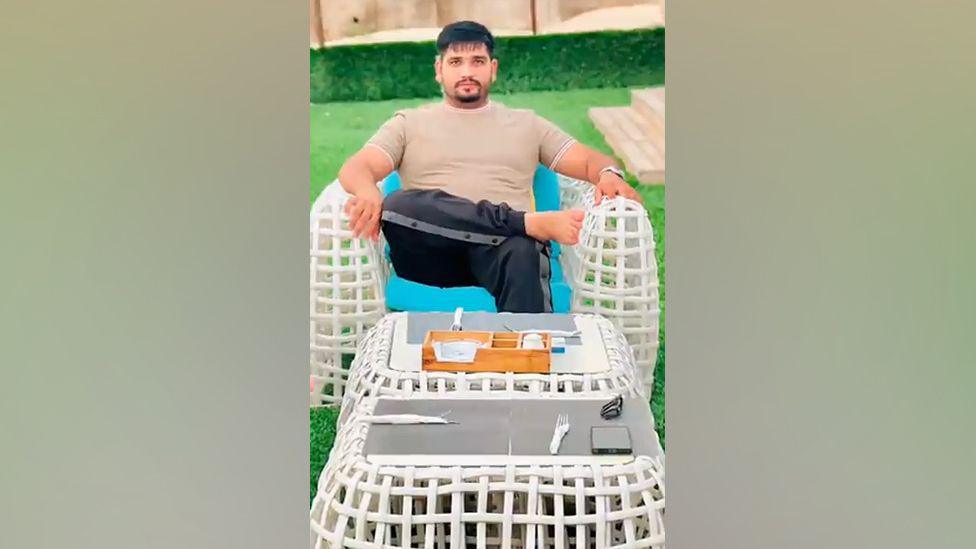
His current location on Facebook is set to Istanbul, Turkey - an oasis for smugglers looking to make a quick buck. Videos posted to TikTok place him in the city since July 2022, showing the smuggler outside the iconic Hagia Sophia and a Pakistani supermarket.
One other location stands out: Mauritania on West Africa's Atlantic coast - the nerve-centre of his operation and the place from which the migrant boat started its perilous journey.

Since 2023, the International Organisation for Migration (IOM) says Mauritania has become a hub for people smuggling - spurred on by a crackdown on other routes.
The route is deadly. IOM data shows that 170 people - including 14 children - have died or gone missing on it this year.
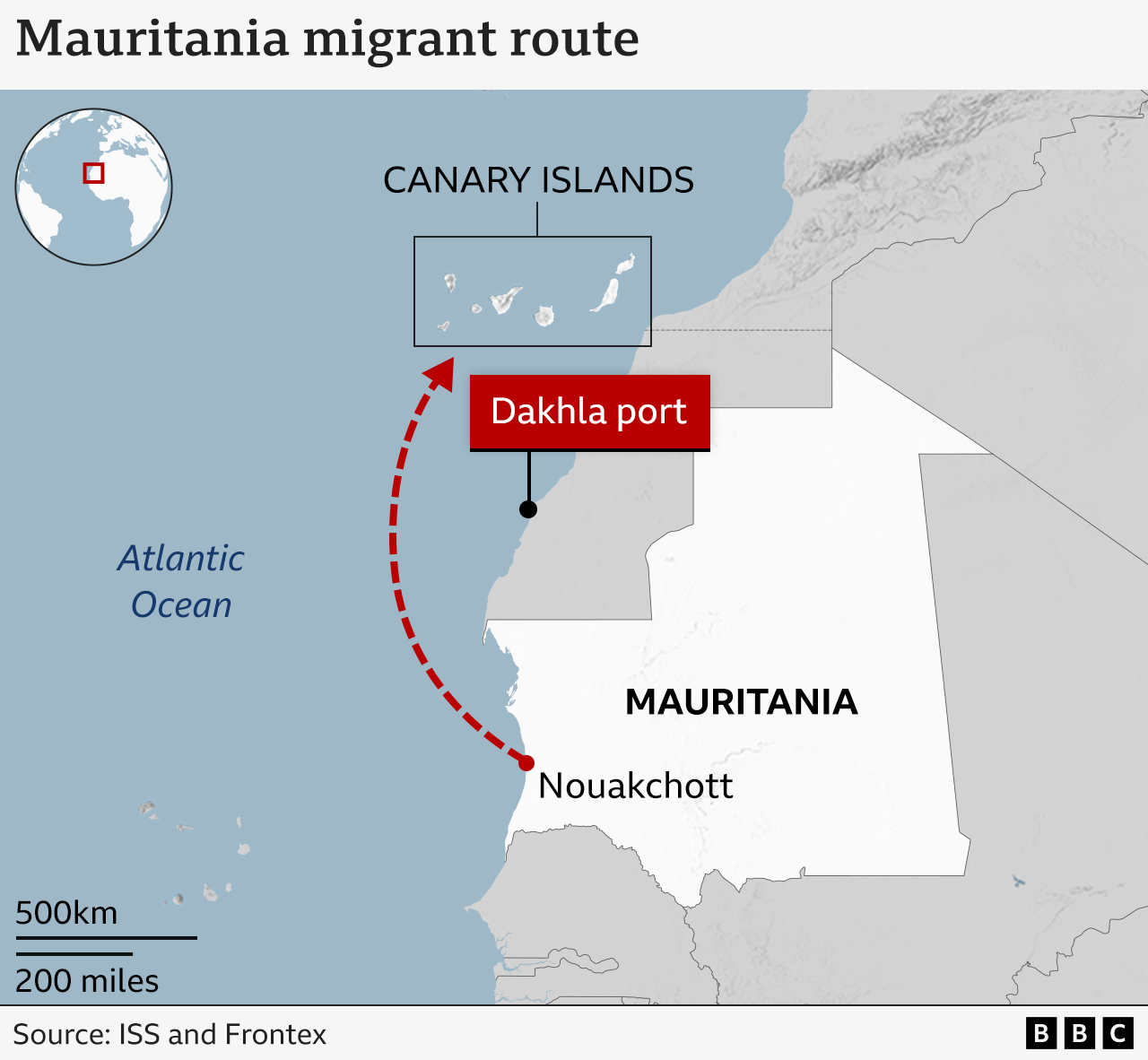
Migrant boats travel from Mauritania to the Canary Islands which are part of Spain and the European Union.
Many Pakistanis seeking economic opportunities in Europe are willing to take the risk. Life there is glorified online by migrants already living on the continent. Smugglers like Gujjar, whose lucrative business is fuelled by people's aspirations, take advantage of this.
These migrants are taking a gamble, using their families' savings or selling up to make the journey. The survivors we spoke to, on average, say they paid Gujjar $13,000 (£10,000).
There are no direct flights from Pakistan to Mauritania, so some of the migrants transited through Ethiopia or the Middle East. From there, almost all of them went on to Senegal, before crossing into Mauritania, either by road or a short boat journey along the Senegal River.
Gujjar's travel history - obtained by BBC Verify through a source - showed the smuggler followed a similar route, entering Dakar airport in Senegal on two occasions in 2024.
Multiple videos also place him in the Mauritanian capital Nouakchott from October 2024 - though the date of upload could differ to when they were filmed.
Further clips, posted to TikTok by Ali and Shahzad place Gujjar in Mauritania as early as August 2024. The trio are seen on the rooftops of Nouakchott's sand-coloured buildings and in restaurants around the city - a luxury other migrants couldn't afford.
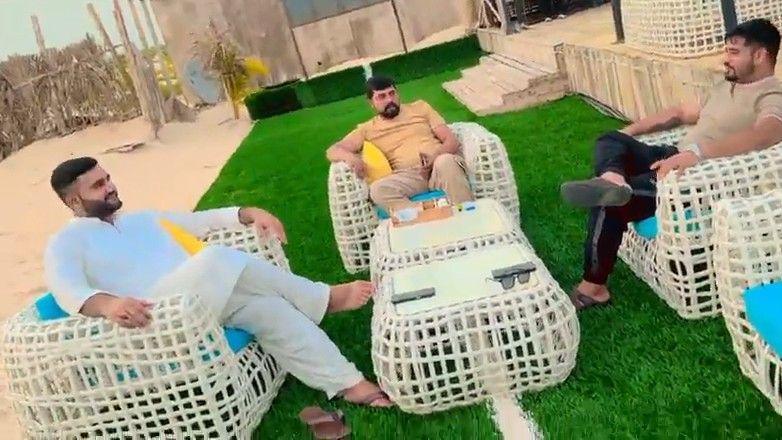
Fadi Gujjar (R), Sufian Ali and Atif Shahzad were close, with images on social media showing them together in Mauritania
Videos from their accounts reveal the men were close, hailing from the same village. Their uncle, Ahsan Shahzad Chaudhry, confirmed to BBC Verify that his nephew Sufian Ali was friends with Gujjar.
Backtracking on promises
One survivor named Uzair Bhat said Gujjar falsely promised him safe and legal routes to Europe. He sent BBC Verify proof of funds transferred to a bank account under Gujjar's real name, Khawar Hassan.
But when Uzair arrived in Mauritania, the smuggler backtracked.
"He said going by air will not work from here. I'll send you by a big ship," Uzair recalled. "Please cooperate, your visa [to Europe] won't come through."
Eventually Uzair relented.
As well as Ali, Shahzad and Uzair, BBC Verify identified two other migrants who bought journeys from Gujjar.
Once they arrived in Nouakchott they say they were placed in "safe houses" - a term used for buildings tucked away in obscure alleys where migrants are held illegally by smugglers.
One person who used a different agent said he also stayed in safe houses run by Gujjar.
BBC Verify confirmed the location of one to an area near the port of Nouakchott, which survivors say Gujjar occasionally visited.
The boat journey
Survivors BBC Verify spoke to say they set off from Nouakchott in a small fishing boat in the early hours on 2 January. Most of those onboard bought passage from smugglers in their hometowns in Pakistan.
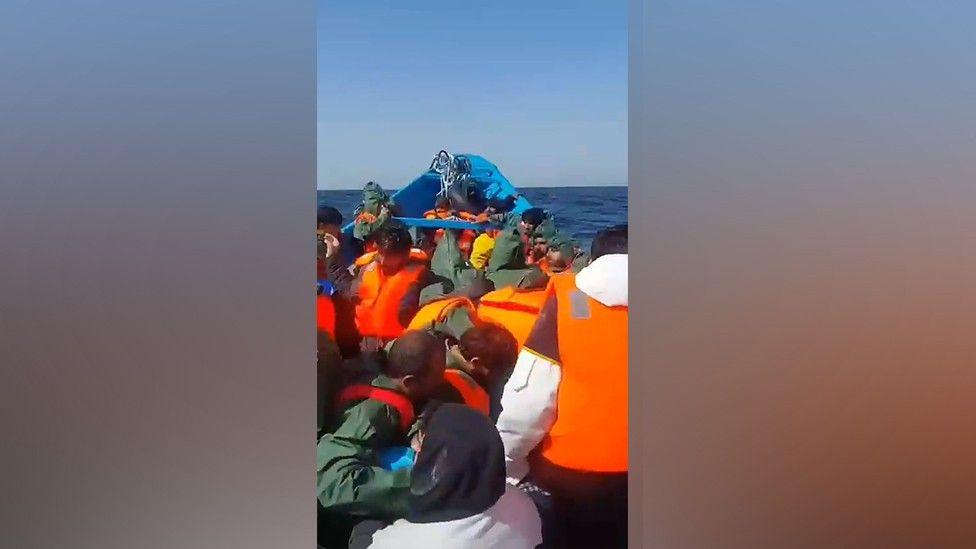
But the three day trip turned into a deadly two-week journey adrift at sea.
Uzair said that from the day they left port the migrants "were constantly scooping water out of the boat". Another man, Bilalwal Iqbal, recalled that passengers soon began "drinking sea water and after drinking it, people became delirious".
According to the survivors, the crew onboard - West Africans employed by the smugglers - starved the Pakistani migrants of food and water, and beat them daily.
"I tried to take one of their bottles of water so they hit me on the head with a rope and the impact just made me fall back," Iqbal told BBC Verify. "Then they pummelled my thumbs with a hammer. I still have those wounds."
Sufian Ali and Atif Shahzad died after being beaten to death by the crew, their uncle said. He was informed of the circumstances surrounding their deaths by survivors.
Others died of starvation, dehydration and hypothermia.
Those still alive, including the crew, had given up until they saw a much larger fishing vessel come into view. Uzair Bhat jumped into the ocean and swam towards it for help.
The coastguard instructed the vessel to take the migrant boat to Dakhla port - 60 miles away. According to the IOM, 15 dead bodies were found onboard while 35 people remain missing at sea and presumed dead.

Pakistani authorities have named Gujjar as one of ten smugglers involved in the tragedy. Some have been arrested, but not Gujjar.
BBC Verify geolocated his most recent TikTok posts to Baku, Azerbaijan - though we cannot say for certain if he is still there.
Since news of the rescue broke, his mother and one of his brothers have been detained in Pakistan, accused of collecting money on Gujjar's behalf from people buying routes to Europe.
BBC Verify has also seen six police reports filed in Punjab by the families of those on the boat journey. They allege Gujjar collected $75,000 (£56,000) for his role in the January disaster. Three people paid in full, while the remaining three had only paid deposits, the police reports said.
We believe Gujjar was still facilitating journeys to Europe after the boat disaster in January.
Contacted by an undercover BBC reporter in March using a phone number obtained from survivors, Gujjar said he "knew someone" who would help arrange a journey, but did not directly offer to get involved himself.
Additional reporting by Dilay Yalçin, Javed Soomro and Joshua Cheetham.

- Published1 August 2023
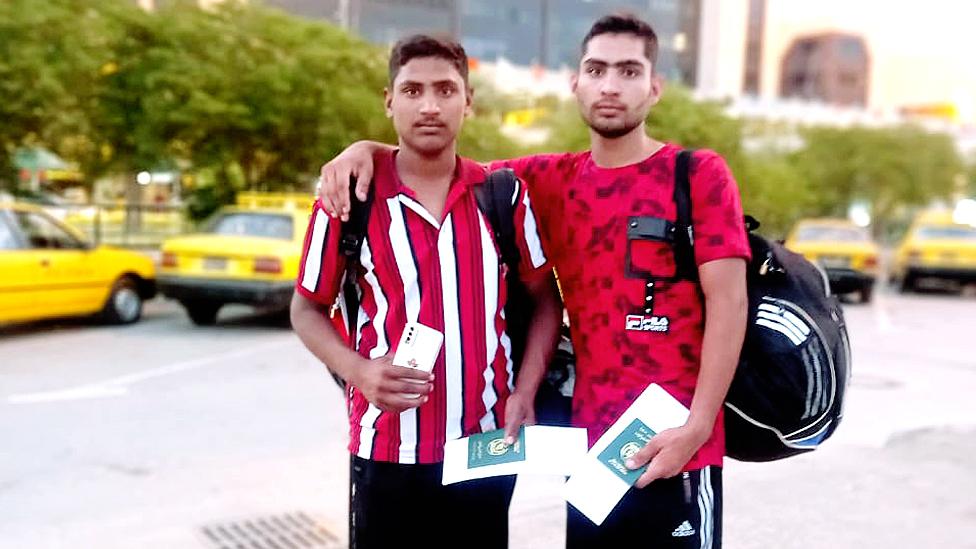
- Published3 July 2024
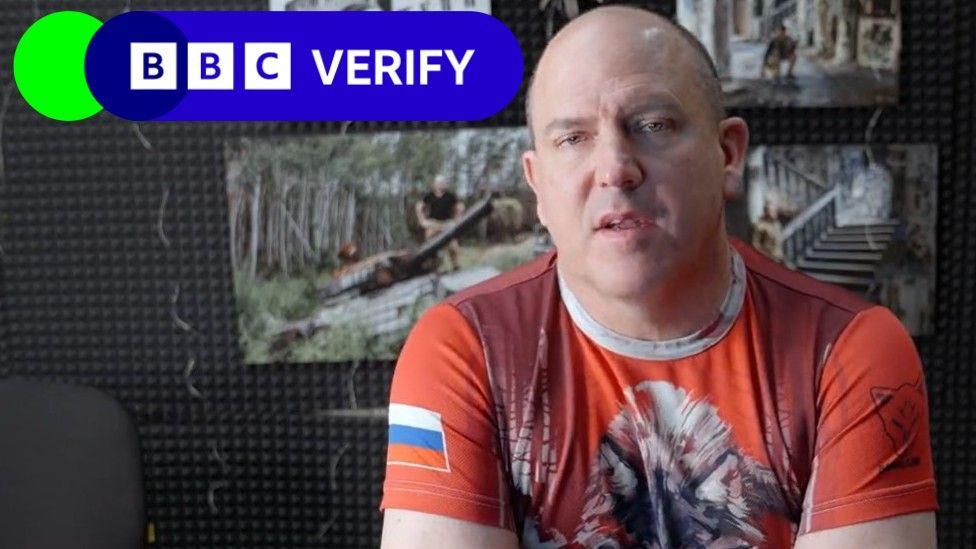
- Published20 December 2024
